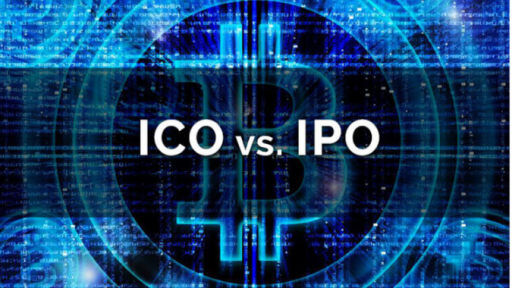- Home
- >
- Fundamental Analysis
- >
- What is the difference between IPO and ICO

What is the difference between IPO and ICO

An initial coin offering (ICO) may be the investing world’s new and in some sense, improved initial public offering (IPO). IPOs, if you are unfamiliar with the term, are when a company seeks funding from the public market and become available to the average person to invest in their stock.
The general public usually doesn’t know much about upcoming IPOs, and instead they only tune in for the heavy hitters. Since the turn of the millennium, most of that hype has focused only on the biggest tech companies around: Google, Amazon, Facebook, etc. On a typical IPO, shares go for about $5 – $20, which makes it easy for a casual investor to join in the frenzy for a few hundred dollars. This has worked fine for a long time, however, investors are seeing smaller and smaller returns on investments as interesting companies are not offering IPO until much later in their life cycle.
Let’s dive a little deeper, and take a look at Amazon’s IPO in 1997 which launched at $400 million market cap. If you put $5,000 at IPO you would now have $2.4 million. A few years later, Google IPOed $23 billion. If you also invested in their IPO, the same $5,000 would now be worth $110,000. Now let’s look at Facebook’s IPO of $38 and a valuation of $104 billion. Your $5,000 investment in Facebook would mean you now have about $22,000.
Let’s take a closer look at the difference between ICOs and IPOs
Speed: IPOs are planned ahead of time with a thorough and fairly rigid process. The amount of logistics necessary to properly roll out an IPO could take up to six months (in addition to the pre-planning stages). An ICO, on the other hand, can bypass many of those steps and swiftly come to market.
Regulation: IPOs have been overseen by the SEC for decades. There’s a tried-and-true process that, though laborious at times, creates a number of safety nets for all parties, but particularly the public buyer. ICOs were largely self-regulated until this summer, when the SEC said that it would start treating ICOs as securities.
International Purchasing: Because of SEC regulations, ICOs that aren’t compliant will be locked out of raising funds in the United States. They are, however, open to coin purchases internationally. Remember, ICOs run through decentralized systems, making purchases swift regardless of where parties are physically located. Because of this, investors have a greater opportunity to purchase coins in overseas companies and vice versa.
Shares: When you purchase a coin offering, it isn’t like purchasing shares in a company. Shareholders get notified about major decisions, receive regular conference calls, and can steer and influence the direction of the company. With an ICO, it is a speculative investment. There are some ICOs that offer profit-sharing or voting agreements, but this is not regulated in the traditional fashion.
ICOs are certainly tempting investments, especially given their reputation as a bold new frontier in the finance industry. There’s a lot of hype for investors to jump on the train while it’s still speeding along quickly — basically, before the SEC eventually slows it all down and reforms it into a traditional process.
Source: Finance Magnates
Trader Bozhidar Arabadzhiev
Original Post: Analysis: ICOs vs. Good Old IPOs – Investor’s Guide
 Varchev Traders
Varchev Traders Read more:
If you think, we can improve that section,
please comment. Your oppinion is imortant for us.












